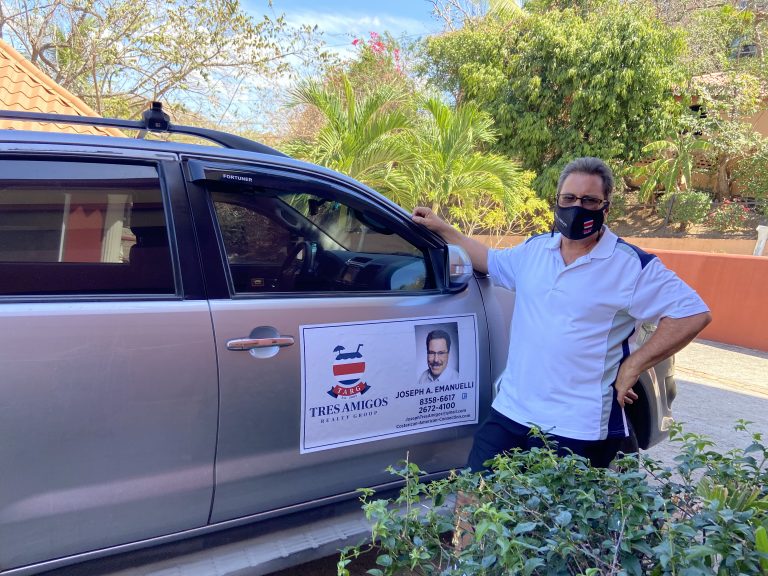“I have heard vehicles are really expensive in Costa Rica,” you say to yourself. “Maybe I should ship my car down to Costa Rica. Surely that will be cheaper!”

Here are the answers to your questions: You are right that vehicles cost more in Costa Rica than in North America, for example. You could certainly ship your car here–there are well-established arrangements to do just that. However, it will not necessarily be less expensive to do so.
 Before inviting your vehicle to join you in your new life, make sure it is the right vehicle for Costa Rica. If your vehicle was manufactured in America or Europe, you will find it more challenging (and possibly more expensive) to find parts and get repairs. The most common parts available are for Asian vehicles, and every mechanic can fix them. Does your car ride low, hug the road, and fly along at high speeds smoothly and comfortably? You will not enjoy those features nor the experience in Costa Rica. Though most highways are paved here, they are not even close to the Autobahn or a U.S. interstate highway. Rough patches and potholes abound, and slow-moving trucks and congestion make hitting 60 mph an uncommon occurrence. Though you may rarely use the 4-wheel-drive feature of your SUV, you will find the higher, sturdier suspension more important than speed and comfort.
Before inviting your vehicle to join you in your new life, make sure it is the right vehicle for Costa Rica. If your vehicle was manufactured in America or Europe, you will find it more challenging (and possibly more expensive) to find parts and get repairs. The most common parts available are for Asian vehicles, and every mechanic can fix them. Does your car ride low, hug the road, and fly along at high speeds smoothly and comfortably? You will not enjoy those features nor the experience in Costa Rica. Though most highways are paved here, they are not even close to the Autobahn or a U.S. interstate highway. Rough patches and potholes abound, and slow-moving trucks and congestion make hitting 60 mph an uncommon occurrence. Though you may rarely use the 4-wheel-drive feature of your SUV, you will find the higher, sturdier suspension more important than speed and comfort.
If you decide your vehicle is a perfect fit, make sure it is in good shape before loading it on a boat since it will undergo a thorough inspection upon arrival by the agency Revision Tecnica de Vehiculos (RITEVE) before you are allowed to take possession. This is the same inspection your vehicle will need to pass on an annual basis.
Importing a car to Costa Rica is a common practice, and there are many reputable car importers. The cost of shipping from the closest port, Miami, is about $1000 plus the cost of maritime freight insurance. Shipping insurance covers the vehicle being lost at sea or loss of the container but does not cover damage to the vehicle inside the container or during transit. If you are interested in shipping your car from Seattle, Los Angeles, Houston, or other port cities the price will be higher and fewer shipping dates offered, but it could be more convenient for you.
Your vehicle will arrive at one of Costa Rica’s two ports–Moin (Limon) on the Caribbean side and Caldera on the Pacific coast. Once your vehicle arrives, the shipping company may transport it to their warehouse in the San Jose area. Warehousing fees will be incurred. The officials at the port and the import company will help you deal with customs paperwork and will assist if you don’t speak Spanish. It is possible the car may have been damaged or–rarely–have parts missing. Unfortunately, there is no recourse to recoup those losses.
Now we arrive at the reason cars cost so much in Costa Rica: customs duties. The customs duties on any car 6 years old or newer can be as high as 80% of the value of the vehicle according to importation laws, not the actual price you paid or the Kelly Blue Book value. This website tells you how much that tax will be for your particular vehicle: CR Government’s Vehicle Import Tax Calculator. It is a good idea to look up your car ahead of time. “To be forewarned is to be forearmed.” Armed with your wallet that is. The government’s market value calculator takes into account every factory feature, option and extra. Mileage and condition are not taken into consideration nor are modifications.
After paying taxes, the customs office will issue a document called a DUA (documento unico administrativo) which is your temporary title for 24-48 hours. This gives you enough time to take your vehicle to be inspected. Once you pass, you can now hire a lawyer to draft the legal document to register your vehicle. Expect to pay around 4.5% of the value of the vehicle to get it registered. Additionally, you will pay the annual road circulation tax (marchamo) and mandatory liability tax. The National Insurance Institute (INS) posts its rates on its website. Once the vehicle is registered, you are assigned license plates. The registration process can take up to one month, but hang in there. You are on the home stretch!
To ship or not to ship? If it is a car that you have owned and cared for, and you have verified that it is a version that is popular here, then it may be to your advantage to ship your vehicle to Costa Rica. You may or may not save money, but there is a lot of peace of mind in driving the ‘devil you know’ versus the devil someone sold you. Which leads us to the next question–Should I buy a car in Costa Rica?
Want to keep up with everything that is happening here in Costa Rica? Join my email list!
Want more information about Costa Rica in general visit my Costa Rica FAQS page
Interested in owning a property in Costa Rica, checkout some great options here.
Have a comment or a question? Feel free to email us



